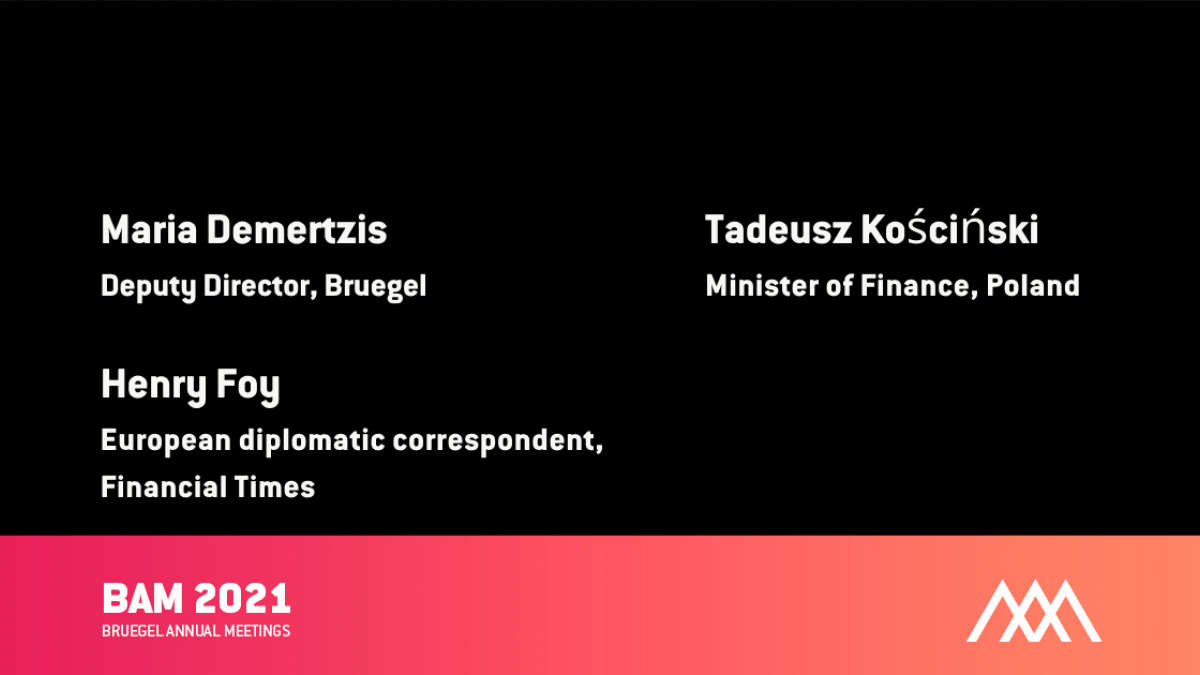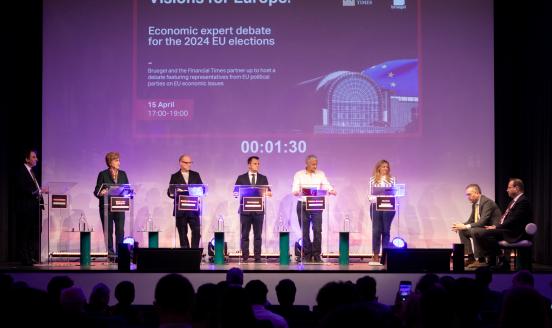Conversation on the recovery programmes
Bruegel Annual Meetings, Day 2- In this session, we discuss the recovery programmes.

Speakers
Maria Demertzis
Senior fellow
Tadeusz Kościński
Minister of Finance, Poland
Henry Foy
European diplomatic correspondent, Financial Times
VIDEO AND AUDIO RECORDINGS
In this session of Bruegel Annual Meetings 2021 we were delighted to welcome Tadeusz Kościński, Minister of Finance, Poland, to discuss the recovery programmes. He was in conversation with Bruegel's Deputy director, Maria Demertzis, and the Financial Times' new European diplomatic correspondent Henry Foy.
summary
Polish Minister of Finance, Tadeusz Kościński started by saying that the first sights of recovery were in sight, with IMF forecasts projecting a 5% increase in GDP in 2021. But the recovery should not be taken for granted as the virus remains with us. The pandemic has left scars on our economies and society. The reaction to the effects of the pandemic on output, unemployment, poverty and inequalities was fast and adequate. Research has confirmed that fiscal and structural policies play a role in alleviating the effects of the crisis and fostering an inclusive recovery. COVID-19 significantly changed the macroeconomic landscape, worsening fiscal balances across Europe, causing public debt to rise.
Discussions on the reform of the stability and growth pact launched by the European Commission should continue. Application of the current fiscal framework would require considerable consolidation and risks of derailing the ongoing recovery. An increase in public investment to facilitate recovery and pursue green transition would be difficult to reconcile with EU fiscal rules. The very needed package, Next Generation EU, coupled with fiscal support measures undertaken at a national level is an indispensable response to mitigate the impact of the crisis and guarantee sustainable recovery. The macroeconomic effects of the package should be assessed not only on a national level but also considering fiscal spill-overs from trade flows and financial markets.
The overall aim of the recovery and resilience plan focuses on economic recovery, greater resilience for future economic shocks and green and digital transition paying attention to economic and social sustainability. Poland put priority on climate and energy challenges in its plan. Among many other actions, Poland will promote investments in renewable energy sources and improving air quality, accompanied by investments in developing offshore power and hydrogen technologies.
Smooth and credible implementation will be critical for the success of the program. A short period of implementation might be challenging for Member States. Swift implementation of projects is essential, but the quality of projects is even more important. Fast implementation should not be at the cost of quality. Finally, projects should not be possible to finance in any other way to avoid the crowding-out effect, where recovery and resilience sources replace existing funding for sources.






